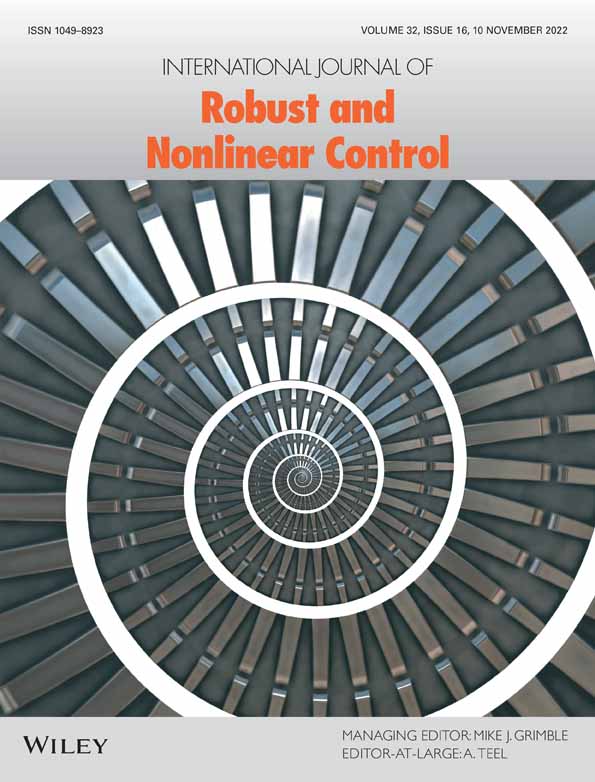Distributed consensus control for networked Euler–Lagrange systems over directed graphs: A dynamic event-triggered approach
Funding information: National Natural Science Foundation of China, Grant/Award Number: 61836001; National Natural Science Foundation Projects of International Cooperation and Exchanges, Grant/Award Number: 61720106010
Abstract
This paper considers the distributed dynamic event-triggered consensus problem of multi-agent systems with Euler–Lagrange dynamics over directed graphs in the presence of uncertain disturbances. To achieve consensus, a dynamic triggering law is designed such that consensus of reference model can be achieved. Different from the static triggering mechanism, an extra variable is involved in the proposed dynamic triggering law, which benefits the exclusion of the Zeno behavior. Then, an auxiliary variable is introduced to simplify agent dynamics, which benefits the controller design. Based on the auxiliary variable, a local controller is further proposed to guarantee the tracking ability of the auxiliary variable to the reference model. Owing to this treatment, consensus of agents can be reached in the presence of external disturbances. In addition, no continuous communication is needed in either controller updates or triggering detection. Finally, numerical simulations are given to demonstrate the effectiveness of the proposed consensus protocol and its advantage in reducing the communication overhead compared with the relevant static triggering mechanism.
CONFLICT OF INTEREST
The authors declare that they have no known competing financial interests or personal relationships that could have appeared to influence the work reported in this paper.
Open Research
DATA AVAILABILITY STATEMENT
Data sharing not applicable to this article as no datasets were generated or analyzed during the current study.




